Bruce Dowbiggin
Are We Okay With Ovie As Hockey’s Greatest Goal Scorer?
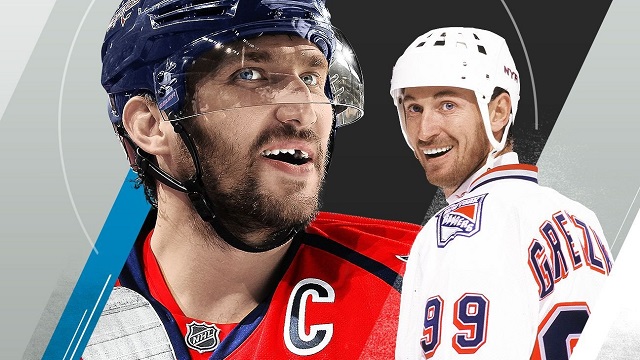
Come meet Bruce Dowbiggin, co-author of Deal With It: The Trades That Shocked The NHL & Changed Hockey. Get your copy autographed, talk hockey. In Calgary Saturday Sept. 28 at Shawville Indigo 11-4. On Saturday Oct. 12 Signal Hill Indigo 11-4. Appearances coming in Fredericton late October and Toronto in early November. Let’s do this thing!
With the grinding war in Ukraine showing no signs of ceasing and Biden-led sanctions doing nothing tangible to deter Vladimir Putin, Russia’s image in the West has rarely been so low. Both sides in the U.S. election accuse each other of being Putin’s stooges, signifying his toxic status. So now might be a good time to ask if the NHL is prepared for a Russian to become the greatest goal scorer in league history.
As the league prepares to start another season on October 4, the top pick in the 2004 Draft is showing every sign that he could pass the game’s greatest in goal scoring. Going into 2024-25, the 39-year-old Capitals star Alex Ovechkin has left the immortal Gordie Howe in the dust. He’s now just 41 scores back of Wayne Gretzky, the Prometheus of NHL scoring. He’s recently broken Gretzky’s record for the most 40-goal seasons in the process. Given health it won’t be the last Gretzky mark eclipsed by Ovie.
1. Wayne Gretzky. 894
2. Alex Ovechkin 853
3. Gordie Howe 801
For his career, the Capitals captain is averaging 0.60 goals per game, meaning at that rate, he could pass Gretzky this season, a pace that Ovechkin is very familiar with. It’s not a given. He scored just eight goals in his first 43 games of 2023-24, but came back strong in the second half of the season to put up a total of 31 for the year, which was the lowest goal-scoring total in an 82-game season.
Hampering him as well might be the ineptitude of the Caps who missed the postseason the past two seasons and who now have few alternatives to draw the defensive concentration away from Ovechkin.
And then there is good health. He’s never played fewer than 68 games in a full regular season. But Ovechkin said he tweaked something mid-training this past summer. He assured the Caps it’s nothing major. “You just have to be smart, and we talk about it with our trainers and the coaching staff. I went there just to see how I feel and feel nice out there,” Ovechkin said after the Caps first practice.
Even in a time of peace this would be interesting to see the public reaction in Canada and the U.S. to a Russian passing Canada’s GOAT No. 99. While the No.1 pick in 2005, Sidney Crosby, has had a squeaky clean image, the Great Eight has been a little salty for some folks. He plays a game Howe would love, dispensing devastating hits as well as brilliant goals. His gap-toothed sneer has not always endeared him to many.
Nor, as we noted in July of 2022, has his proximity to Vladimir Putin himself. In November 2017, Ovechkin started a movement called PutinTeam in support of Putin during the 2018 Russian presidential election. In the past he’s sought to have a foot in both camps. “I don’t know what’s happening out there,” he said in 2022. “I know it’s a hard situation, but it is what it is. You know, I play here, and this is my second home. I don’t want to fight between two countries, because it’s going to be a mess.”
Too late on that front, Alex. Putin’s naked aggression and Biden’s clumsy inability to unseat him (he’s endorsed assassination) have left the West on the brink of a war with nuclear potential. Legendary Czech goalie Dominik Hasek thinks Ovechkin should not be allowed to play in the NHL, and that Russian players be banned. “The NHL should, and could make a decision,” Hasek told reporters. “It’s not only about [NHL Commissioner] Gary Bettman. There are 31 owners of NHL teams, and I think that those people are the most responsible. They can sit in their room, and they can vote and make a decision, but they do not want to make that decision.”
With perhaps a million dead so far and no settlement in sight, few can say where the conflict is headed. Except that it’s highly unlikely the West will be surrendering its sons to the battlefield when NATO runs out of Ukrainians willing to die.

One thing about Ovechkin is certain. As we pointed out in our 2022 book Inexact Science: the Six Most Compelling Drafts in NHL History, Ovechkin put paid to the bias against Russians at the top of the NHL draft. While there had been Russian Hall of Fame selections in the middle to lower rounds of the draft (Sergei Fedorov, Pavel Bure, Sergei Zubov) Ovechkin’s No. 1 overall was considered a risk at the time. He changed the equation.
“It began in 2004, when the Capitals selected Russian phenom Alex Ovechkin, maybe the greatest pure goal scorer the NHL has seen. A number one pick who has lived up to the billing of “generational player,” Ovechkin maybe would have been even more widely hailed as that “Next One” had he developed under the intense hockey media spotlight of Canada, or North America in general.
Never before had an international player earned the kind of accolades Ovechkin received leading up to his draft year. After all, he was only the second Russian ever to go that high on draft day. But the fact he wasn’t a Canadian kid may have tempered the headlines around “Ovie” and made some fans skeptical about his supposed wizardry.
He wasn’t helped by how easily a stacked Team Canada had handled him and his Russians in the World Juniors of 2004 and 2005. In retrospect, “The Great 8” was actually undersold as a generational legend. But all of this made his majestic rookie season as a 20-year-old in 2005–06 more of a revelation than it would have been otherwise.
CAA agent J.P. Barry says that some resistance remains. “Even with Russian players, we’ve seen a hesitance in the past. A few teams have said to me, “Sorry, we just don’t draft Russians. End of story.” I know of several teams that did make that an internal memo. Some even said, “We can’t take a Euro in the first three rounds!” I don’t think there’s any team that could say any of that anymore, though. Way back when, however, there were these unwritten internal policies that were just silly.
There was definitely a period there where teams didn’t want to touch Russians, because they didn’t feel that they could get them to come over. Sometimes they were teams impacted by something negative that happened in the past and let it change their course of action.”
If Ovechkin didn’t entirely smash the Russian stereotype then his countryman Evgeni Malkin, selected right behind Ovechkin in the 2004 draft, sealed the deal. (Ironically the two were rivals for a long time, only reconciling in recent years). Lifetime, Malkin has 444 goals and 702 assists in an injury-riddled career.
To the NHL’s credit, it hasn’t banned or sanctioned its Russian stars as some have done. The country’s teams are banned from international soccer and hockey tournaments and the Paralympics. Russian tennis players Daniil Medvedev and Andrey Rublev (the top-2 ranked Russian male players) were barred from participating at the 2022 Wimbledon. Many Russian artists have seen their concerts cancelled.
For now Ovechkin is walking a tight rope. He’s called for peace without mentioning Russia or Ukraine directly. In May 2022, he reiterated his support for Putin, as well as retaining the Russian president on his Instagram profile photo. Much depends on the progress of the war, and how much Canada and the U.S. are drawn into the combat.
The best advice is probably to keep his head down and his politics to himself if he wants to be celebrated for passing Gretzky.
Bruce Dowbiggin @dowbboy is the editor of Not The Public Broadcaster A two-time winner of the Gemini Award as Canada’s top television sports broadcaster, he’s a regular contributor to Sirius XM Canada Talks Ch. 167. His new book Deal With It: The Trades That Stunned The NHL And Changed hockey is now available on Amazon. Inexact Science: The Six Most Compelling Draft Years In NHL History, his previous book with his son Evan, was voted the seventh-best professional hockey book of all time by bookauthority.org . His 2004 book Money Players was voted sixth best on the same list, and is available via brucedowbigginbooks.ca.
Bruce Dowbiggin
Kirk’s Killing: Which Side Can Count on the Military’s Loyalty Now?
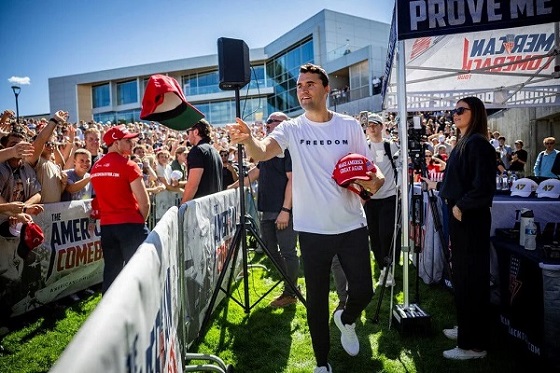
“After every armistice, you want to put us away in mothballs, like the fleet. When it comes to a little dying you’ll be sure to put us in a uniform…” Seven Days in May
In the 1964 political film Seven Days in May, a rogue Director of the U.S. Joint Chiefs of Staff conspires to launch a coup against a failing president who’s just signed a nuclear disarmament treaty with the Soviets. The plot is uncovered by a Marine Corps colonel, and the coup is barely averted with all the conspirators apprehended.
In 1964 the notion that the loyalty of the military/ intelligence services might be compromised was a hot topic in the days afterJFK’s assassination. After calming down in the Reagan days— remember Woody Allen’s revolution spoof Bananas?— it has now returned.
How likely is a military/ intelligence coup? Loyalty of troops has been crucial in many coups and insurrections around the world. Famously the socialist regime of Salvador Allende was crushed in 1973 when the Chilean military staged a bloody coup. Allende and thousands were murdered as General Augusto Pinochet took over the country.
Still, the conceit in Western nations has always been “It can’t happen here”. The institutions of government are believed too strong and independent to allow themselves to be taken over by their militaries. The chattering classes prefer to see their military as Stanley Kubrick did in Dr. Strangelove— bumbling buffoons, lackeys led by General Buck Turgidson.

Certainly in Canada, where successive Liberal government culminated with Justin Trudeau, the Kubrick model is closer to reality. DEI hiring, cuts to budgets and a slavish reliance on America to protect Canada for free have produced a Canadian military with more in common with HMS Pinafore than Vimy Ridge. From the world’s third-largest navy in 1945, Canada is now a boat that can’t float.
But something seems to have changed with the Tuesday murder of conservative commentator Charlie Kirk. It seems a massive provocation by people who want to destroy the American society. It’s not helped by the voices on the Left claiming he brought it on himself with hate speech. @punishedmother “Maybe Charlie Kirk shouldn’t have spent years being a hateful demagogic fascist and this wouldn’t have happened. Maybe he should take some personal responsibility.It will take careful leadership to prevent this boiling over.”
This growing intolerance between the political sides exposed yet again by Kirk’s assassination has made people consider the Armed Forces’ loyalty in a crisis. As in, who has it? (In pacifist Canada the current clash of cultures is that support of the military might be necessary in resisting the conservative right. Despite Bill C-23 disarming Canadians the unarmed Left might face a large, well-armed rightwing population brandishing weapons.)
In a divided America think of Tom Cruise’s JAG character in A Few Good Men confronting hardened Marine commandant played by Jack Nicholson— and you have the conflict. “You can’ t take the truth!” Fighting generals are a thing of the past when Democrats are in power. Successive presidents have used DEI to create desk generals and commanders who reflect good taste over good planning.

This DEI mission creep in the military was one of Donald Trump’s strongest planks in defeating hapless Kamala Harris in the 2024 election. Canadian Liberals, meanwhile, managed to dodge their pathetic defence shortcomings only by making the 2025 election all about Trump and a 51st state, not defence or Chinese influence.
There has been evidence that some at the highest levels of the U.S. military, CIA and FBI have already shown a bias toward Democrats. In the waning days of Trump 45 Chief of Staff Mark Milley told the Chinese leadership— America’s No. 1 global rival— that he would personally tip them off if Trump launched a surprise attack on China.
In another time (or movie) Milley’s treachery would been seen as treasonous, punishable by a life in the stockade or, possibly, execution. In the hands of the DC Media Party, however, Milley’s partisan gambit was buried in the run-up to the 2020 election. As with the concurrent Hunter Biden laptop scandal, the story was made to disappear in a welter of Trump demonization and legal harassment
Now we must wonder again. Sadly for Harris, Milley and Team Obama, the Democrats were thrashed by the Trump agenda. POTUS 45—now 47— quickly began replacing lifetime loyalists in the military and bureaucrats, stifling for now the urge to purge,
Again this scenario was unthinkable a generation ago, a plot in a movie. But the governments of Barack Obama and Joe Biden (Trudeau in Canada) have created a social schism that has turned politics into a blood sport. As we know there were two attempts on Trump in the election campaign by deranged radicals. The defeated Democrats’ obsession over who controls the Supreme Court and Congress in Trump’s presidency, the repeated comparisions to Hitler, are producing greater and more strident anything-is-accepted calls from the radical Left to take to the streets and pursue civil disobedience.
In Canada Mark Carney’s Elbows Up gambit is dissipating rapidly since the election, producing active discussion of separation in Alberta and Quebec (again). This raises questions about what the military might do in the aftermath of a vote by either side to leave Canada. Might they intervene? Would they stand aside? Will tanks roll to protect a Carney Canada?
No doubt Charlie Kirk’s death will be mobilized by both sides in their appeals for the loyalty of the military should a civil war break out in the U.S. Get your generals in a row. MSNBC’s Jen Psaki has declared Trump’s tribute to Kirk “an escalation” Says legal expert Jonathan Turley, “We are already at political assassinations, so I am not sure how much more room for escalation there may be for Psaki or MSNBC.”
Bruce Dowbiggin @dowbboy is the editor of Not The Public Broadcaster A two-time winner of the Gemini Award as Canada’s top television sports broadcaster, his new book Deal With It: The Trades That Stunned The NHL And Changed hockey is now available on Amazon. Inexact Science: The Six Most Compelling Draft Years In NHL History, his previous book with his son Evan, was voted the seventh-best professional hockey book of all time by bookauthority.org . His 2004 book Money Players was voted sixth best on the same list, and is available via brucedowbigginbooks.ca.
Bruce Dowbiggin
Ken Dryden: Hockey’s Diogenes. He Called Them As He Saw Them
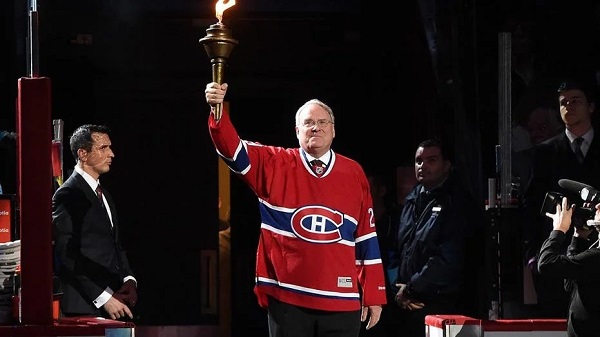
There is much talk about the Canadian identity in these days of mass immigration , diversity and refusal to integrate. The 1970s were a simpler time for such rumination on culture, however. Riding the new global identity of Pierre Trudeau (soon to be regretted), the times were fired by the 1972 hockey summit win by Canada over the Soviet Union.
The series contained many of the self-held perceptions of the nation. Plucky underdog. Tenacious competitor in global affairs. Limitless possibilities. All seemingly rolled up into two weeks 53 years ago this month. Many of these notions were still manifest in the 2025 federal election when Boomers had a conniption fit over Donald Trump and withdrew into their Elbows Up phase.
So it should come as no surprise that one of the stars of that 1972 team was goalie Ken Dryden. While not being dominant throughout against the shifty Soviets, Dryden peaked at the right moments (in tandem with Tony Esposito) to snatch the eight-game series at absolutely the final possible moment.

It’s hardly an exaggeration that, while a number of the Canadian players lost their minds in the tense fortnight, Dryden carried himself with cool dignity. There were no Phil Esposito jeremiads. Not Jean Paul Parisé stick wielding. No Bobby Clare two-handers to the ankles of his opponents. Just the emerging figure of the lanky goalie resting his chin on his stick as he waited in the net for Kharlamov and Yakushev.
For the generation that watched him develop he was likely the quintessential modern Canadian. Son of a charitable community figure. Educated in the Ivy League. Obtained his law degree. Served as a federal cabinet minister. Author of several definitive hockey books (The Game is perhaps the best sports non-fiction in the English language). Executive of the Toronto Maple Leafs. And more.
He was on the American telecast of the 1980 U.S. Miracle On Ice at Lake Placid. And the radio broadcast of the 1976 Canada Cup. Ubiquitous media source. Loyal to Canada. And crucially, a son, husband, father and grandfather. If you’d created a model for the citizen of Canada of his times it was Ken.
He could be cranky and verbose, yes. His books often took issue with the state of the modern game. Concussions. The Trap. Excessive goalie pads. But his defining moment may have come in 1973 when, upset with Sam Pollock’s contract offer, he left the Montreal Canadiens to finish his law degree in Toronto. It’s important to note that his reputation at the time was a goalie carried by the Jean Beliveau super teams. Yet the Canadiens allowed 56 more goals in the 1973–74 season than they had the year before with Dryden. Plus they lost in the semifinals after winning the Cup the previous spring. Karma.
When he returned the Habs ripped off four consecutive Stanley Cups. Phil Esposito praised him as that “f’ing giraffe” who stole at least two Cups from the Bruins. He retired for good in 1979, and the Canadiens didn’t win another Cup till 1986. Which enhanced his reputation. His combination of tenacity, independence and integrity made him many fans. And launched a generation of goalies who broke the mould.

So his passing in the year that Boomers exercised their cultural privilege one last time is a fitting codicil to an era that held so much promise and has ended in a lost culture and renewed talk of separation in Quebec and Alberta. Many have emotional memories of Dryden, and social media has exploded with them on the news Friday of his death at 78.
For us, our quintessential Dryden moment came in 2001 at the NHL Draft. We were working for the Calgary Herald, he was an executive with the Maple Leafs. As we arrived at the Miami airport in a torrential rainstorm who was standing in the car rental lobby but the unmistakable No. 29? As fellow authors, we’d met many times, and we had quoted him so often we can’t count the times. So there was no fan-boy encounter.
This day he was a lost soul whose car rental had fallen through. Could we give him a ride to the media hotel? Sure. The company was welcome. As we rolled along though the pelting rain, searching for the right highway (this was pre-Waze) we talked about family and background. How were my kids? How was his wife now that he was hearing it from Maple Leafs fans?
Above the machine-gunning of the rain we then pivoted to hockey. He wanted to know what was going on with the Flames (they were mediocre at the time). And he wanted to talk about the state of trap hockey which was then choking the art of the game. Where was the beauty, the artistry in a league dumbed-down by clutch ‘n grab?
After chatting and squinting through the sheets of rain for 45 minutes we finally arrived at the hotel in Sunrise. As we walked into the lobby Ken thanked us for the ride and gave us $40 for gas. Media colleagues watching the scene were flabbergasted. Ken had a reputation as being frugal, and here he’d readily given me $40! U.S.! What could this mean? Did we get as scoop they’d have to chase. Ken blandly shooed them away, saying he had to check in.
We didn’t get a hot tip on a story. But we did get several gems to use in our next book Money Players, a finalist for the 2004 Canadian Business Book of the year. We meant to thank him for the material. Somehow the moment was never right. Now we won’t get that chance.
We might say the same for Canada. Somehow the moment was never right. Now we won’t get that chance. RIP Ken.
Bruce Dowbiggin @dowbboy is the editor of Not The Public Broadcaster A two-time winner of the Gemini Award as Canada’s top television sports broadcaster, his new book Deal With It: The Trades That Stunned The NHL And Changed hockey is now available on Amazon. Inexact Science: The Six Most Compelling Draft Years In NHL History, his previous book with his son Evan, was voted the seventh-best professional hockey book of all time by bookauthority.org . His 2004 book Money Players was voted sixth best on the same list, and is available via brucedowbigginbooks.ca.
-

 Censorship Industrial Complex2 days ago
Censorship Industrial Complex2 days agoFreedom of speech under threat on university campuses in Canada
-

 Business2 days ago
Business2 days agoCarney engaging in Orwellian doublethink with federal budget rhetoric
-

 Alberta2 days ago
Alberta2 days agoOttawa’s destructive federal energy policies and Premier Danielle Smith’s three part solution
-

 Alberta2 days ago
Alberta2 days agoIs Alberta getting ripped off by Ottawa? The numbers say yes
-
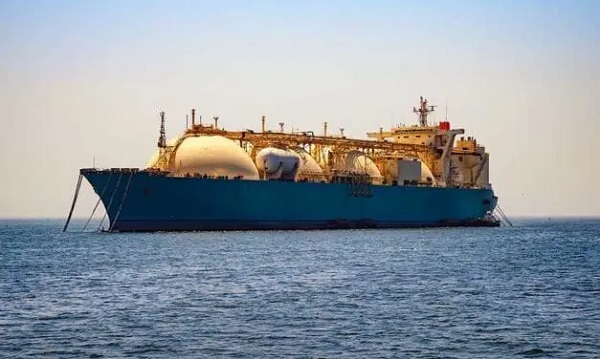
 Energy2 days ago
Energy2 days agoCanada’s LNG breakthrough must be just the beginning
-
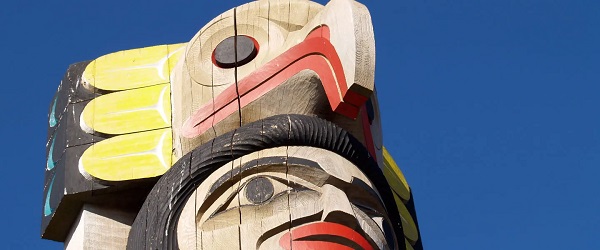
 Business2 days ago
Business2 days agoCourt’s ‘Aboriginal title’ ruling further damages B.C.’s investment climate
-
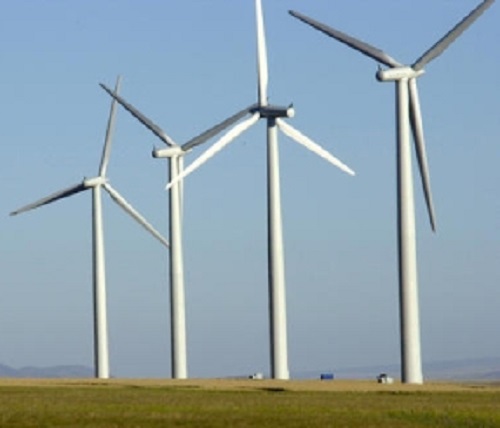
 Agriculture2 days ago
Agriculture2 days agoIn the USA, Food Trumps Green Energy, Wind And Solar
-

 Business2 days ago
Business2 days agoManitoba Must Act Now To Develop Its Northern Ports




